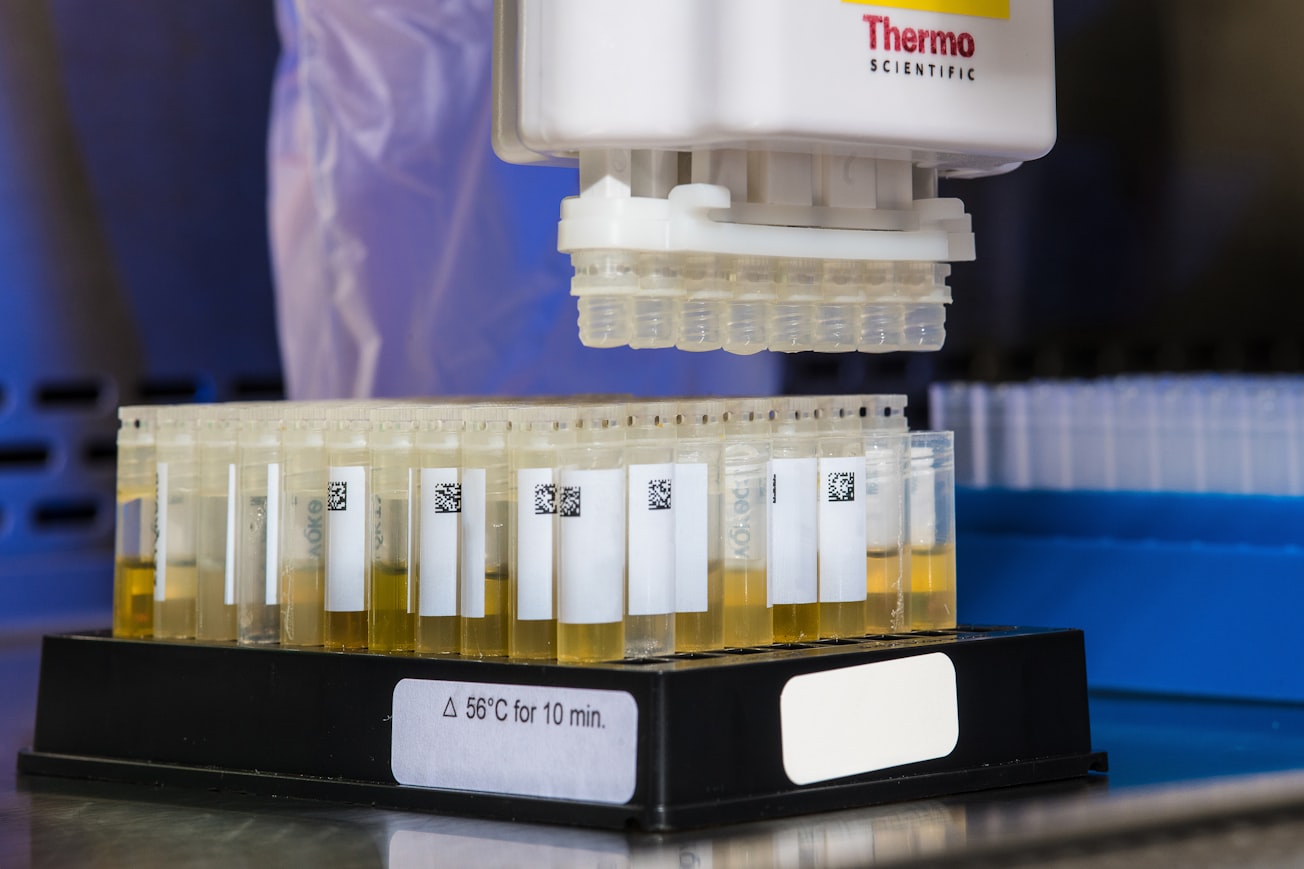What is it about?
Urine is a complicated biological fluid; we can analyse it with a technique called Nuclear Magnetic Resonance (NMR) to gain useful biological information, but the sheer number of compounds in urine (or blood, or indeed any other biofluid) can lead to peak overlap, where stronger signals 'drown out' weaker signals. Using a technique called Solid Phase Extraction (SPE) peak overlap can be reduced, which means more information can be got out of samples.
Featured Image

Photo by CDC on Unsplash
Why is it important?
Biofluids like urine are very commonly studied in clinical medicine, and will only get more important as the field of personalised medicine grows. Within these biofluids we are looking for 'biomarkers' - indicative of disease, diet, and/or lifestyle - which will give doctors more confidence when diagnosing patients, but finding these biomarkers is a big undertaking in itself. If we can develop new ways to find biomarkers - which may be obscured by other compounds in a sample, and hence might be able to be revealed using techniques like SPE-NMR - this gives us more ability to find biomarkers, and hence empower healthcare professionals.
Perspectives
This was a paper presented as part of the Faraday Discussions, a Royal Society of Chemistry-run conference. It covers a significant amount of the work covered in my PhD project.
Dan McGill
Rosalind Franklin Institute
Read the Original
This page is a summary of: Application of novel solid phase extraction-NMR protocols for metabolic profiling of human urine, Faraday Discussions, January 2019, Royal Society of Chemistry,
DOI: 10.1039/c8fd00220g.
You can read the full text:
Resources
Contributors
The following have contributed to this page










